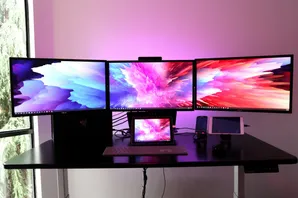
When I was 17, all I had was an old PC and a dream: to become a professional poker player. Back then, although the games were softer, I still struggled. It wasn’t until I took a step back from poker and found success in other areas that I realized the problem wasn’t the game; it was me.
I wasn’t cut out to be a pro — at least, not yet. Fast forward to today, I’m 34, an established poker professional, and I’ve coached over 250 players ranging from aspiring amateurs to high-stakes crushers earning mid-six figures annually. In this article, I’ll share the mistakes I made and how I turned my poker dreams into a reality.
Becoming Good is Boring
Viktor Kudinov, a high-stakes player, hit the nail on the head during an interview on the Mechanics of Poker Podcast: “You’ve got to be really good at doing the same thing over and over again.” That’s spot on.
Becoming truly good at poker requires consistent and deliberate effort. Take flop defense, for example: mastering it means studying solver outputs for hours, which isn’t exactly thrilling for most players. There are ways to make it more enjoyable, but at the end of the day, it’s about logging the hours.
You can’t expect exceptional results if you put in mediocre effort. Poker, like life, doesn’t work like that.
To become a professional poker player, you need to act like one.
Long-Term vs. Short-Term Goals
One of the biggest mistakes I made — and that I see others make — is sacrificing long-term success for short-term gratification.
Whether it’s playing a tougher format, hitting the tables during off-hours when the games are harder, or simply not sticking to a disciplined approach, it’s easy to fall into the trap of doing what feels good now, even if it harms your future success.
When I returned to poker in 2019, I committed to minimizing compromises. Past failures had taught me that I wasn’t a naturally gifted player. So, I told myself, “Assume you’re average and give it everything you’ve got.”
I focused on playing the best games, aggressively table-selected, and spent every waking hour studying to plug the many leaks in my game.
Maybe I would’ve gotten there eventually, but since I only have one life to live, I decided to give it everything I had to boost my chances of making my poker dream a reality.
Embracing the Data: Mass Database Analyses (MDA)
When I first started, the tools available were basic — just PokerStove, which helped crunch the numbers to see who had the best hand.
Fast forward to my return to the game years later, and everything had changed. Solvers were in, GTO trainers were emerging, and new tools like Hand2Note let you dive into population tendencies. I immediately saw the value of using data in my decision-making process.
Imagine making a bluff against an unknown opponent, armed with data from over 200 million hands, knowing exactly how often players fold in that spot, by what margin, and what the ideal bluff size is.
Leveraging data to refine my strategies has been a game-changer, and it could be for you too.
Teamwork Makes the Dream Work
While online poker might seem like a solo endeavor, like in many individual sports (think cycling or running), the best progress often happens in teams. Each Tour de France rider is part of a team, even though they compete individually. The lesson? You improve faster as part of a group.
I’ve shared knowledge and resources freely, not fearing it might strengthen my competitors at my expense. In poker, like in many strategic games, sharing insights often leads to mutual benefits.
This approach not only enriched my strategies but helped me build a network that became the foundation of NachosPoker. Sharing and collaborating have been keys to our collective success.
The Road to Success
Turning the dream of becoming a professional poker player into reality isn’t just about understanding cards and poker odds; it’s about commitment, adaptation, and community.
Throughout my journey, I’ve learned that shortcuts and complacency don’t lead to success. Embracing the grind, leveraging the latest tools, and diving into data can elevate your game. But even more important are the relationships you build along the way — they enrich your experience and broaden your opportunities.
Whether you’re just starting out or aiming for higher stakes, remember: poker isn’t just a game; it’s a pathway to personal and professional growth. Stay dedicated, use every resource available, and most of all, enjoy the ride with those who share your passion.
That’s the essence of truly winning at the game of poker.











